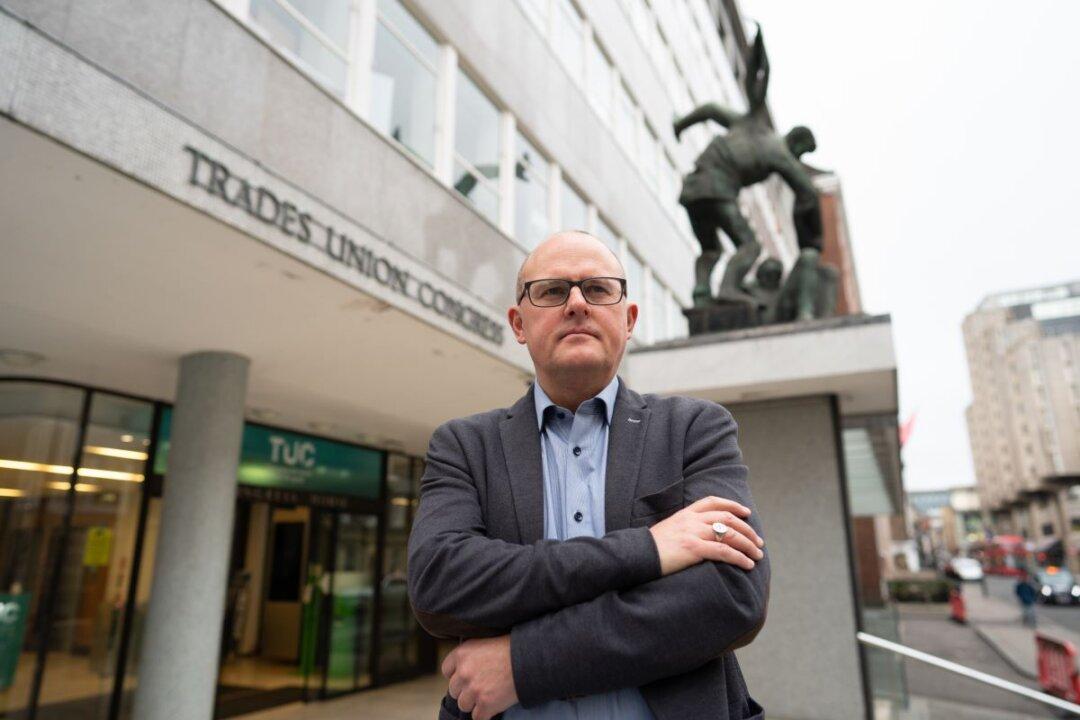The new general secretary of the Trades Union Congress (TUC) has accused Prime Minister Rishi Sunak’s government of refusing to listen or negotiate about pay demands which have led to strikes on Britain’s railways and in the National Health Service.
Train services over Christmas were badly hit by strikes and Network Rail warned this week that “industrial action means rail travel will be significantly disrupted throughout December and January.”





